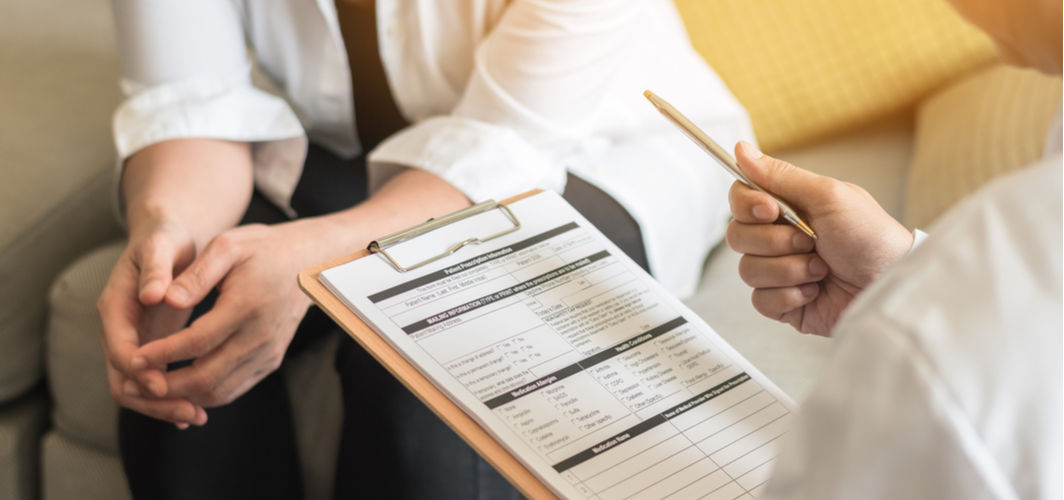Women's Wellness
Gynaecological Problems After COVID-19 Recovery
4 min read
By Apollo 24/7, Published on - 03 June 2021, Updated on - 18 April 2024
Share this article
3
26 likes

With continuous research, experts are learning more about COVID-19 each day. So far, it has been established that people affected by COVID-19, especially those who were hospitalised, may experience some common symptoms such as fatigue, shortness of breath, and sleeping disorders even after their recovery. In addition, gynaecological issues have also been reported in women post-COVID-19 recovery.
What gynaecological problems are seen in women post-COVID recovery?
It is a known fact that the COVID-19 virus not only affects the respiratory system but can cause other complications including cardiovascular and digestive issues.
While little research has been done on the effect of the COVID-19 virus on the reproductive system of women, some gynaecological issues have been noted after their recovery. The most common gynaecological issues include:
1. Irregular periods
Some women have reported temporary changes in their menstrual volume and cycle length after being diagnosed with COVID-19. A study published in the journal Reproductive BioMedicine Online in 2021 documented the menstrual patterns of 177 women with COVID-19. The results of the study showed that:
- Out of the total patients, 45 patients experienced a change in the volume of menstrual bleeding (either low or heavy bleeding), while 50 patients reported a change in the duration of their menstrual cycle (longer or shorter-than-normal cycle).
- Less bleeding and a longer menstrual cycle were observed in most cases.
- 34% of women who suffered from severe COVID-19 illness experienced a menstrual cycle of longer than 37 days than the 19% who experienced mild illness.
- There were no significant changes in the levels of sex hormones amongst those who suffered from COVID-19 infection and those who didn’t.
- The menstrual cycles of these women returned to normal in 1 to 2 months after recovery.
Recommended Read: Why Some Women Have Irregular Menstrual Cycles
2. Loss of libido
Due to the pandemic, most people have been out of work and have been staying indoors without any or limited activities. This has led to stress, anxiety and depression in many. A study published in the Journal of Gynecology Obstetrics and Human Reproduction in 2020 stated that stress and depression have induced significant changes in the sexual behaviour of people (including women) during the pandemic.
As per the study, some of the reasons for the loss of libido in women after their recovery from COVID-19 include:
- Isolation can result in depression which, in turn, can disrupt the release of serotonin and other hormones in the brain responsible for increasing libido.
- Some people after recovering from COVID-19 resort to anti-depressant medications to reduce stress and depression. Antidepressant drugs such as selective serotonin reuptake inhibitors (SSRIs), suppress the release of serotonin (the happy hormone) in the body, resulting in decreased libido.
- Depression and anxiety can also disrupt the sleep cycle and reduce the release of estrogen in the body. Low levels of estrogen can lead to lowered libido in women.
Can COVID-19 vaccines affect the menstrual cycle?
Doctors have reported cases of haemorrhage, blood clots, and thrombocytopenia (low platelet count) in people after the administration of the COVID-19 vaccine. Some women have also reported a change in their menstruation patterns after taking the COVID-19 vaccine. However, these effects are believed to be temporary as the menstrual patterns were reported to normalise in a few weeks after vaccination.
As per an editorial published in the British Medical Journal on 14th April 2021, the irregularities found in 958 women post-vaccination include:
- Heavy menstrual bleeding (menorrhagia)
- Bleeding before the due date (metrorrhagia)
- Shorter menstrual cycle of less than 21 days (polymenorrhea)
- Bleeding after menopause (postmenopausal bleeding)
More research is needed to determine the impact of the COVID-19 vaccine on menstruation.
What should be done to maintain gynaecological health after COVID-19 recovery?
Women who have recovered from COVID-19 can take care of their gynaecological health with the help of some easy measures, some of which could be:
- Practise meditation, mindfulness, pranayama (controlled breathing), and Taichi (martial art) to maintain mental health as it is important for overall wellbeing.
- Consume nutritious iron and calcium-rich foods such as green leafy vegetables, milk, cheese, legumes and dried fruits to prevent anaemia, which can otherwise result in heavy and irregular bleeding during periods.
- Practise medium intensity exercises such as brisk walking, running, swimming, and cycling every day for at least 30 minutes.
- Consulting the doctor if they experience persistent fatigue, heavy bleeding, spotting between two-period cycles, and an abnormal delay in period dates. Teleconsultation can be done to avoid re-exposure to the virus.
Conclusion
Some scientists believe that hormonal imbalances in women affected by COVID-19 results in reproductive health issues. However, other experts opine that stress and anxiety due to the pandemic could be the reason behind these gynaecological issues. More studies are needed to find out the connection between the novel coronavirus and the reproductive system of women. In the meantime, women must report any irregular bleeding events post-COVID recovery or vaccination to their doctors to prevent adverse consequences.
Women can also get a comprehensive test done from Apollo 24/7 for early detection of diseases and to ensure overall health.
Women's Wellness
Leave Comment
Recommended for you

Women's Wellness
Eating Disorders: Why Women Are More Affected
If not diagnosed or treated, eating disorders can cause severe damage to the digestive system, heart, bones, teeth, and other vital organs.

Women's Wellness
5 Major Health Issues Every Woman Should Know About
Women are at a higher risk of several diseases than men. Adopting healthy habits and regular clinical checkups can significantly reduce the risk of these diseases in women.

Women's Wellness
Is It Safe to Use Medications During Lactation?
When prescribing medications to a breastfeeding mother, the doctor needs to weigh the benefits of the specific medicine against the potential risk it may cause to the baby.
Subscribe
Sign up for our free Health Library Daily Newsletter
Get doctor-approved health tips, news, and more.
Recommended for you

Women's Wellness
Eating Disorders: Why Women Are More Affected
If not diagnosed or treated, eating disorders can cause severe damage to the digestive system, heart, bones, teeth, and other vital organs.

Women's Wellness
5 Major Health Issues Every Woman Should Know About
Women are at a higher risk of several diseases than men. Adopting healthy habits and regular clinical checkups can significantly reduce the risk of these diseases in women.

Women's Wellness
Is It Safe to Use Medications During Lactation?
When prescribing medications to a breastfeeding mother, the doctor needs to weigh the benefits of the specific medicine against the potential risk it may cause to the baby.